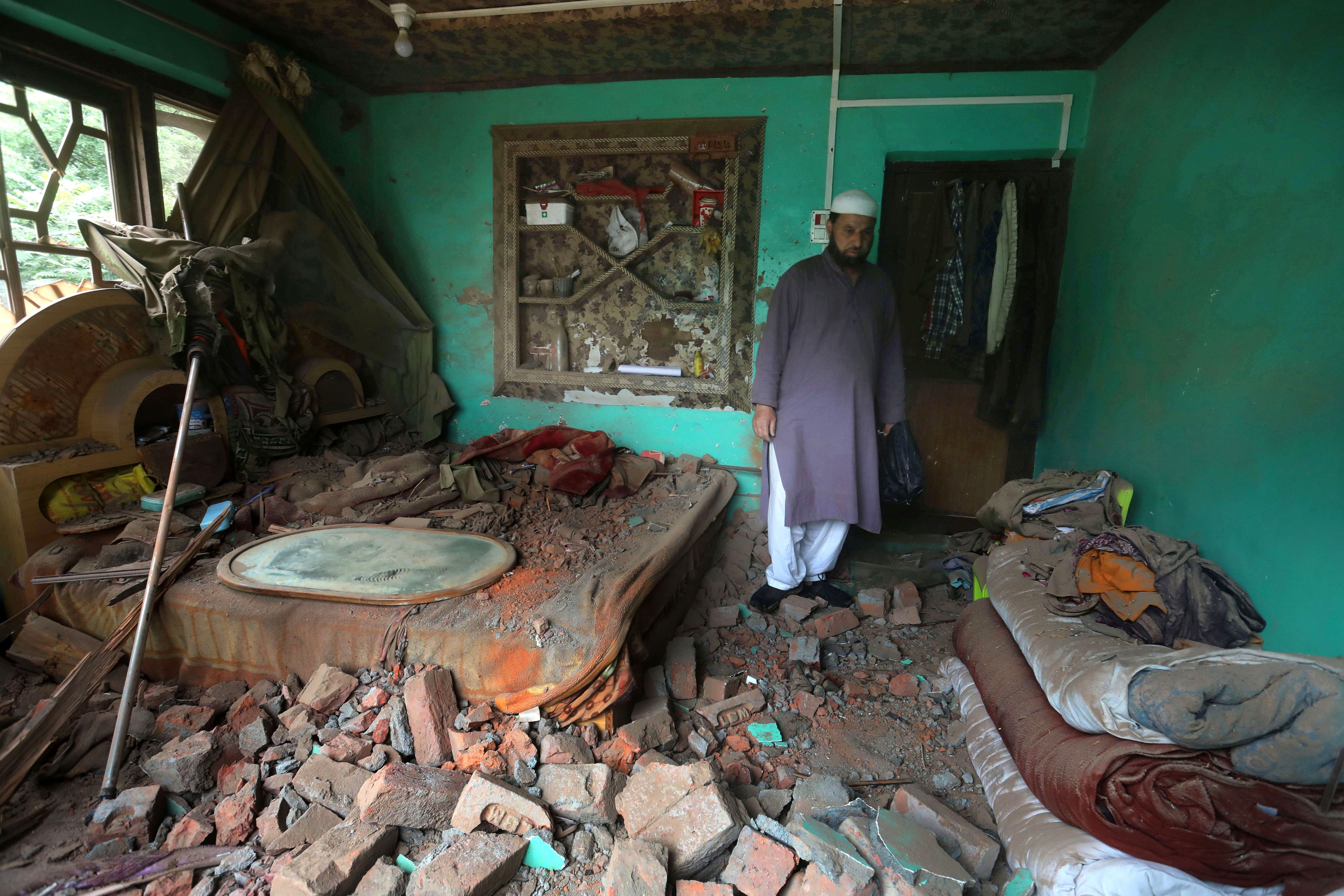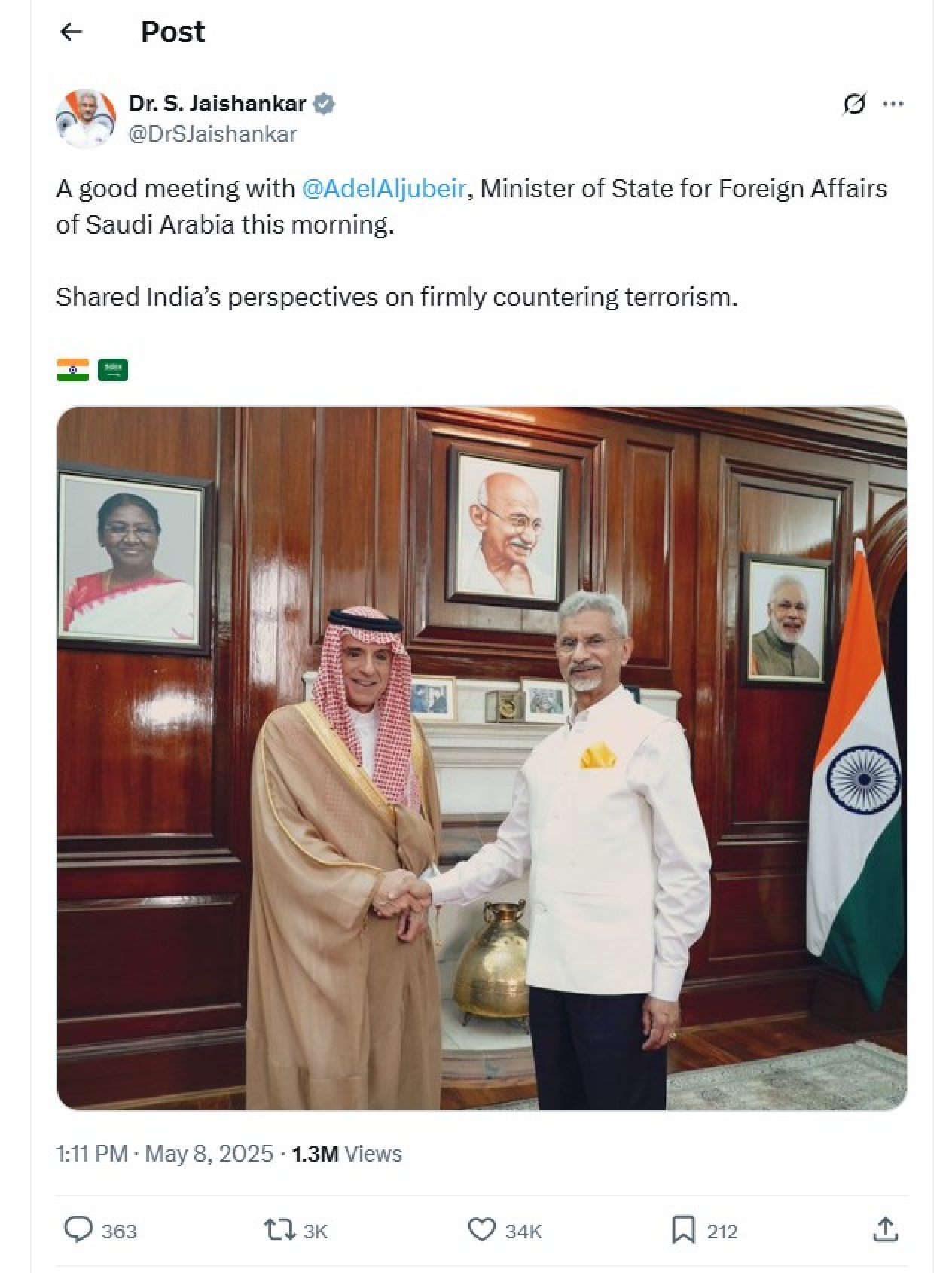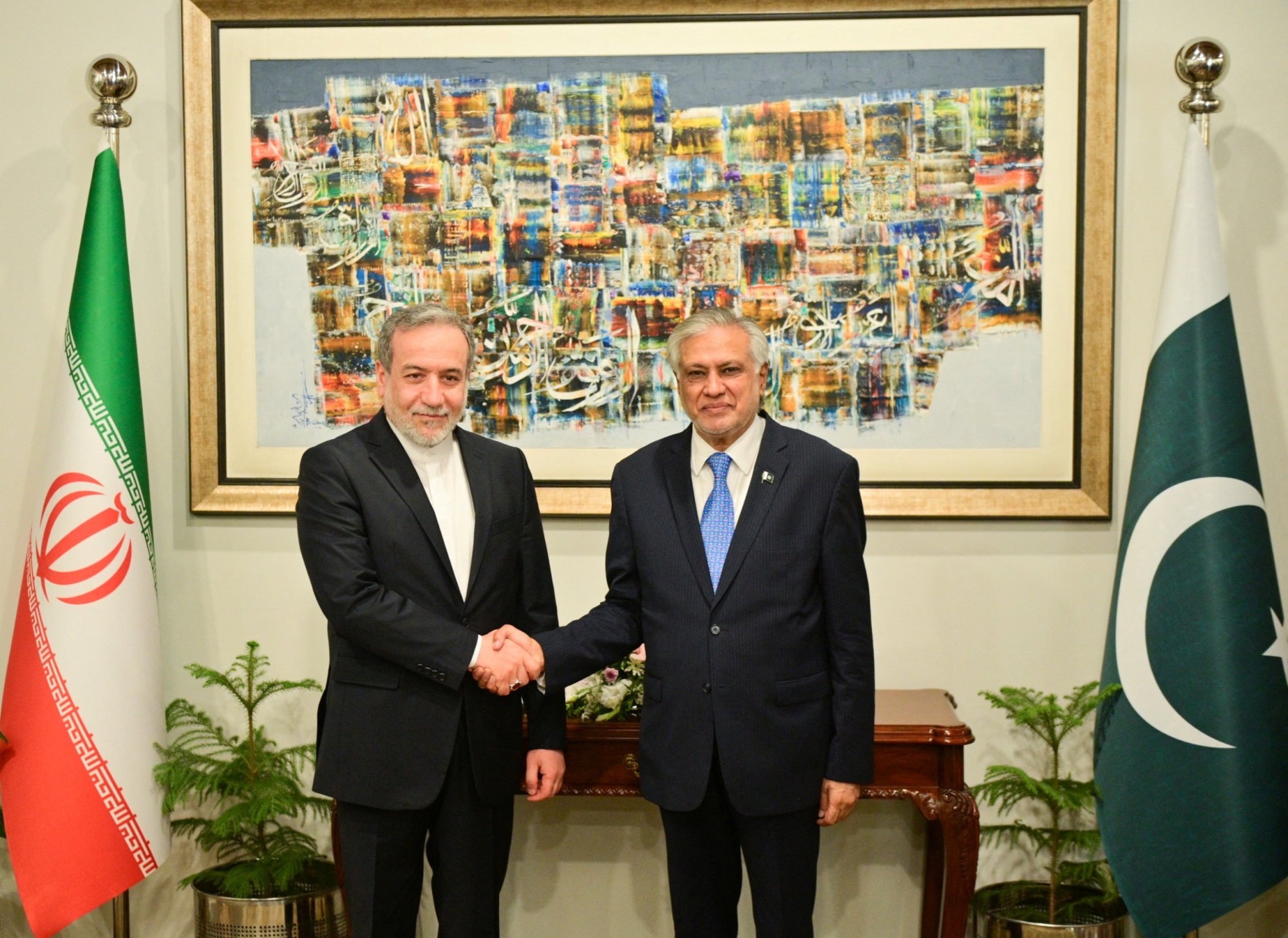India-Pakistan conflict: Iran, Saudi officials urge restraint as tensions surge
Visits underscore growing concerns that conflict could spiral out of control, but analysts say more concerted global efforts needed to defuse tensions

Two high-profile visits by Middle East leaders, Iranian Foreign Minister Abbas Araghchi and Saudi Arabia’s junior Foreign Minister Adel al-Jubeir, to New Delhi this week have highlighted global concerns about the deepening India-Pakistan conflict.
The surge in hostilities between the nuclear-armed neighbours came in the wake of the April 22 attack in Pahalgam, Indian-administered Kashmir, in which 26 people were killed.
India launched air strikes in Pakistan and Pakistan-administered Kashmir on Tuesday, while Islamabad claimed to have shot down five Indian jets in response.
The fighting has shown no signs of abating, with Indian and Pakistani soldiers overnight exchanging heavy gunfire and shelling along their frontier in Kashmir.
Kashmir – a Muslim-majority region claimed in full but controlled in part by both India and Pakistan – has been the site of a bloody conflict since an anti-Indian insurgency erupted in 1989. Tens of thousands of people have died, though violence has tapered off in recent years.
India’s army said Pakistan’s armed forces carried out “multiple attacks” using drones and other munitions across the entire western border on Thursday night and early on Friday, a claim Islamabad denied.
The flare up between the two countries is the worst in more than two decades and comes at a time when geopolitical alliances are in flux. Both the United States and China, who are in the midst of trade tensions, have asked the two South Asian nations for peace.
Iran’s Foreign Minister Araghchi, who arrived in Delhi on Thursday after visiting Islamabad earlier this week, called for restraint between the two neighbours.
“We hope that India and Pakistan will prevent the escalation of tension in the region,” he said. “Our region needs peace, especially to expand economic cooperation between regional countries, and we hope this will happen.”
Araghchi was in India to co-chair a joint commission meeting scheduled in advance.
Jubeir, Saudi Arabia’s junior foreign minister, made an unannounced visit to Delhi on Thursday to hold talks with Subrahmanyam Jaishankar, India’s external affairs minister.
“A good meeting with @AdelAljubeir, Minister of State for Foreign Affairs of Saudi Arabia this morning,” Jaishankar later posted on X. “Shared India’s perspectives on firmly countering terrorism.”

Pakistan’s foreign ministry spokesman on Friday, however, blamed India for bringing the two nations closer to war.
“India’s jingoism and war hysteria should be a source of serious concern for the world,” Shafqat Ali Khan said in a press briefing in Islamabad.
With tensions still at a high, analysts said the visits by the two Middle East leaders underlined concerns that the India-Pakistan conflict could escalate and spin out of control.
Harsh Pant, an international relations professor at King’s College London, said the visits would help restrain India and Pakistan, but more concerted international efforts were required to resolve the tensions.
“They can try to de-escalate, but they will require support,” he said.
Stakes are high for the resolution of the conflict, given that prolonged tensions will affect economic cooperation between India and the Middle East, analysts note.
Yashwant Deshmukh, an independent political commentator, said India’s Prime Minister Narendra Modi had been active in establishing stronger ties with countries in the Middle East such as Iran and Saudi Arabia. Last month, Modi visited Riyadh with the aim of forging closer economic partnerships.

The resolution of the India-Pakistan conflict is also important to Iran because it shares a border with Pakistan, and therefore would be concerned about having an unstable neighbourhood, according to Deshmukh.
India-Pakistan tensions are occurring at a particularly sensitive juncture for Iran, which is holding talks with the United States to reach a deal over its nuclear programme.
While Iran has condemned the militant attack on tourists in Indian-administered Kashmir, it has also expressed concern over the rising military tensions between India and Pakistan, urging both sides to show restraint.
Nilanjan Mukopadhyay, an independent political commentator, said the visits by the two Middle East leaders showed that India had “diplomatically been making the right moves to secure global support”.
He also noted that there has been a groundswell of support for Modi’s government among core supporters of the ruling Bharatiya Janata Party regarding the military action.
With television reports of attacks overnight on both sides, Mukhopadhyay said world leaders must step up efforts to help resolve the crisis swiftly.